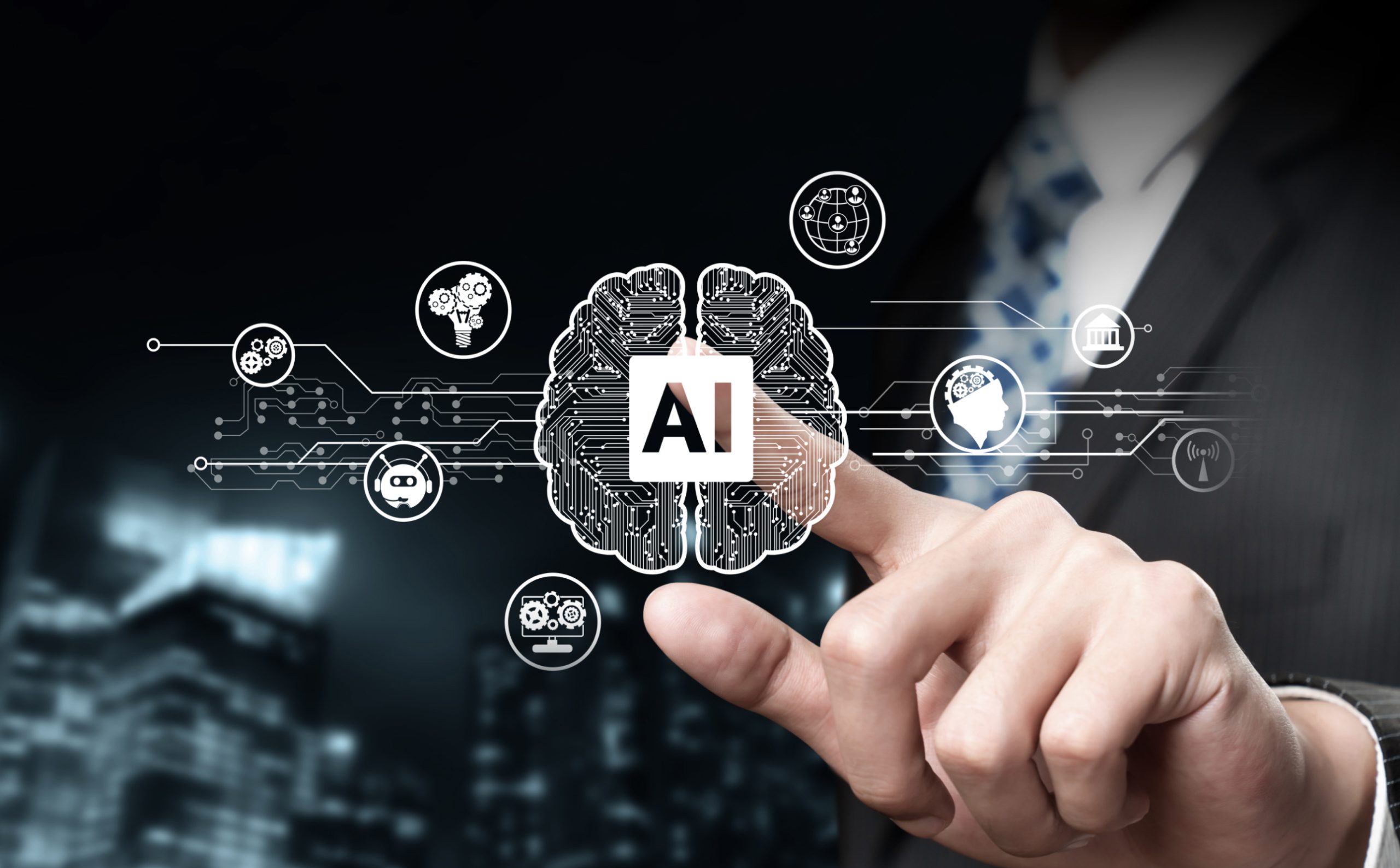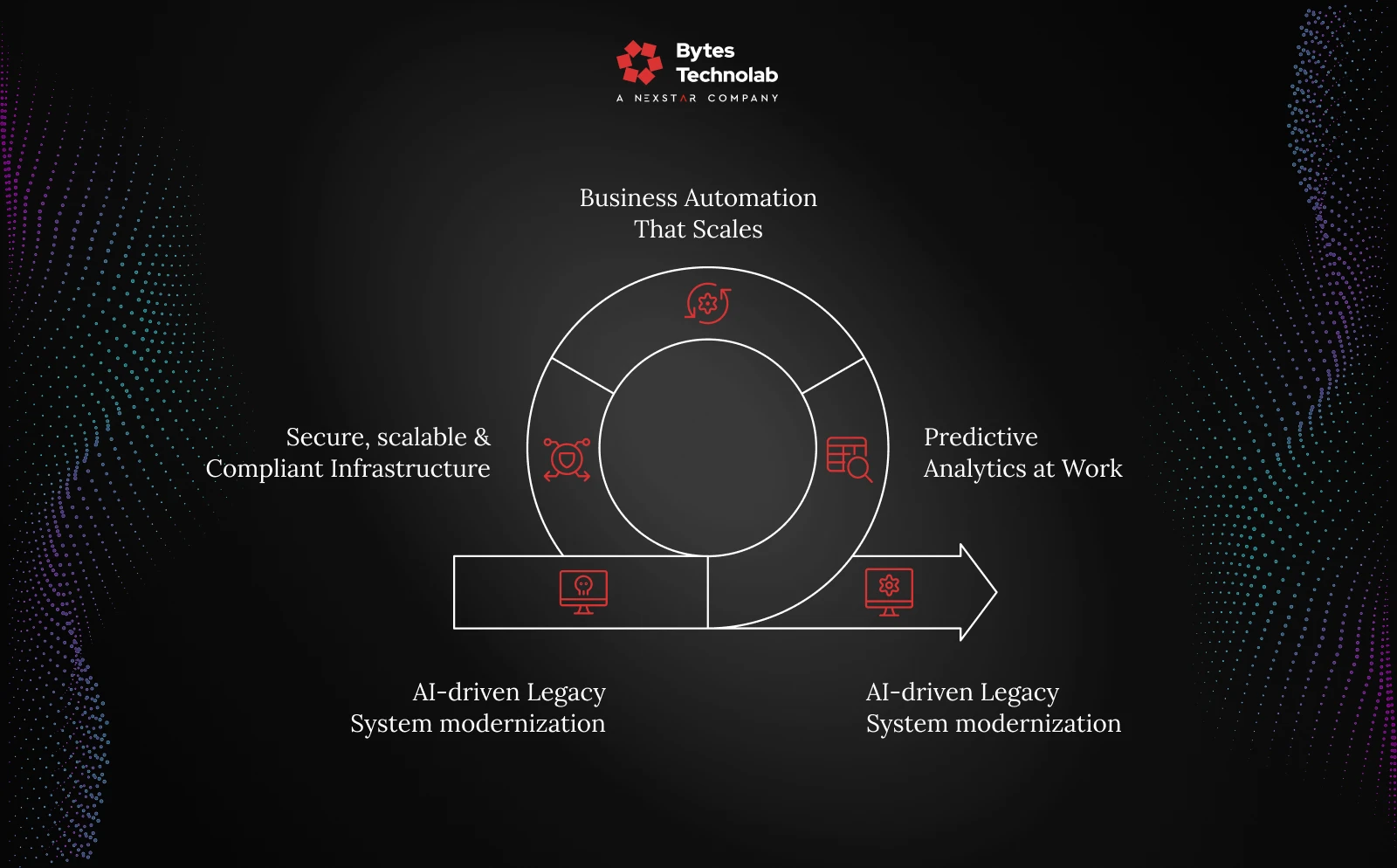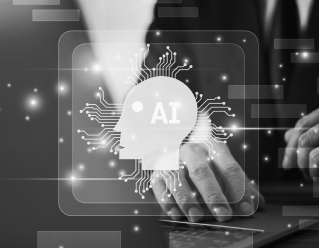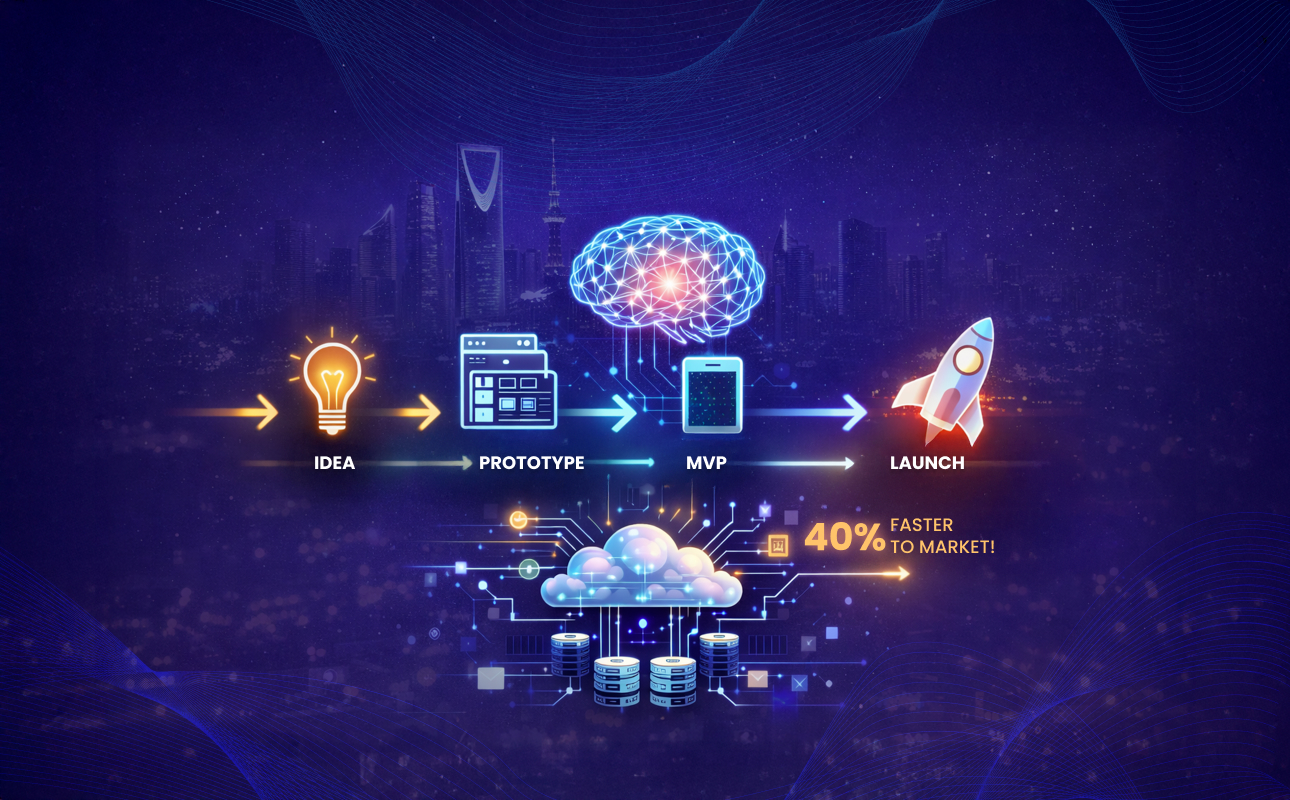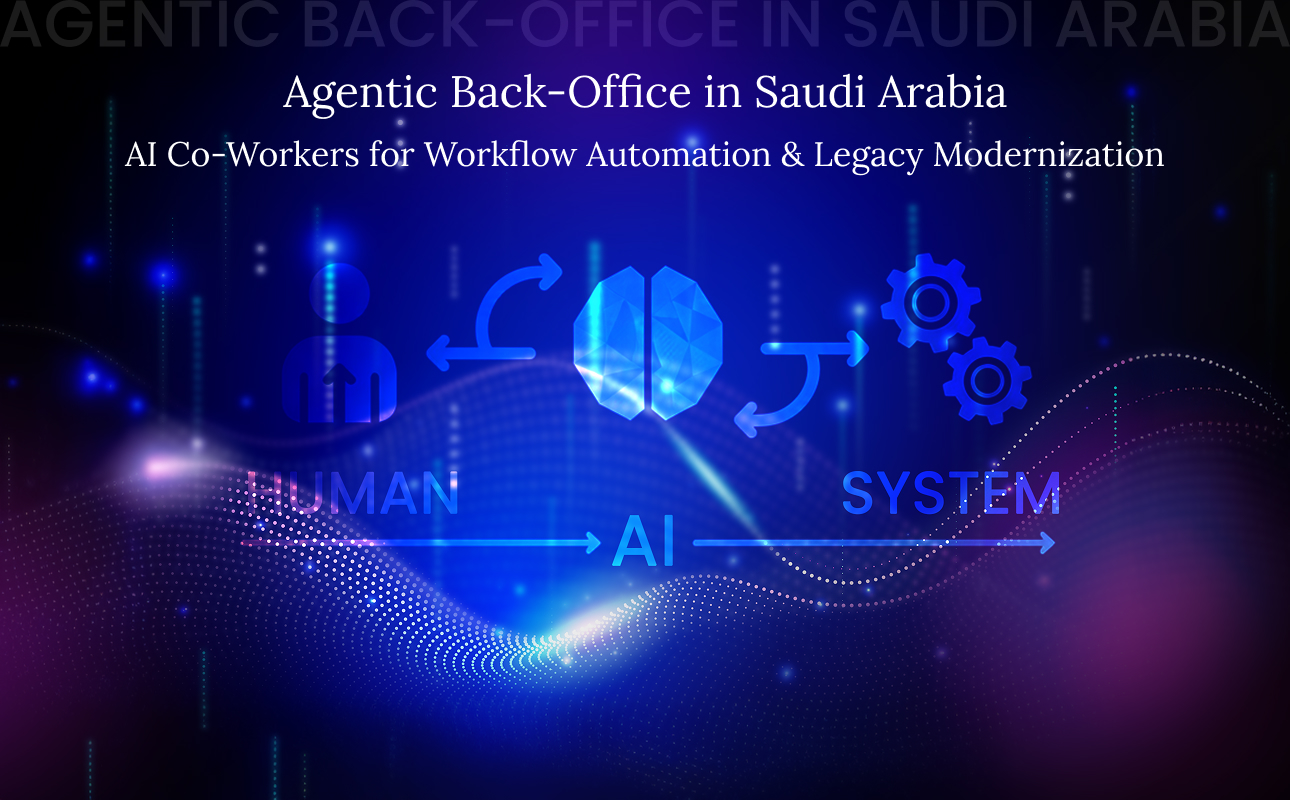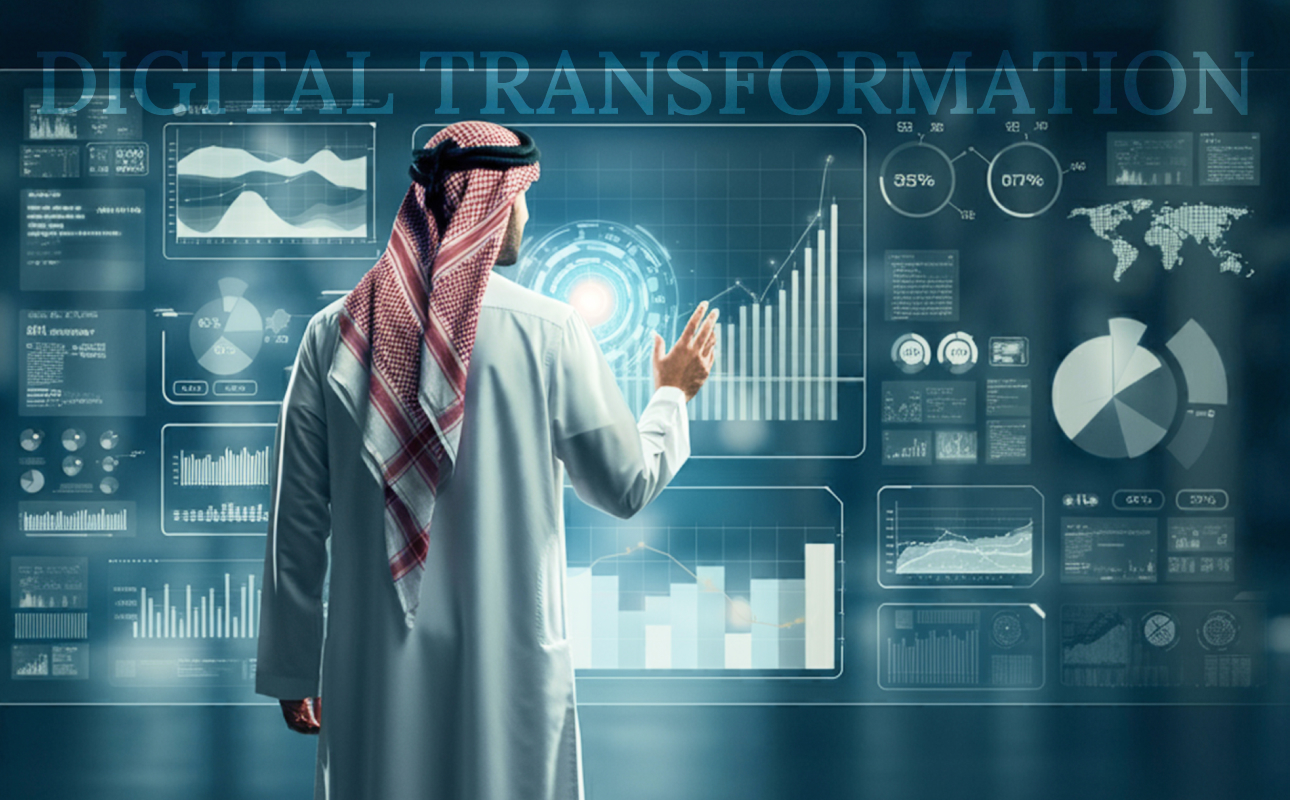You can probably find a mix of old and new technologies behind the scenes in almost any Saudi business today, whether it’s a bold startup in Riyadh, a successful small business, or a multinational in Jeddah. A lot of companies still use old systems that have “served well,” but now they feel more like roadblocks than stepping stones. You’ve probably seen this happen before: systems from a different decade slow things down, annoy employees, and make it hard to keep up with new digital technologies.
AI gives legacy systems the ability to evolve by adding intelligence, adaptability, and technology that will transform the brand to be future-ready. From the efficiency point of view, it is a much better methodology than replacing everything for short-term fixes. AI adoption is not putting paper over the cracks. It is the right way in modern times for businesses to keep up with the competition in order to stand out and make a name for themselves.
As Vision 2030 guides national priorities, never before has digital transformation, including AI & ML solutions in Saudi Arabia, been more strategic or more necessary. Upgrading those established but outdated systems isn’t just a technical need; it’s at the center of competitiveness, compliance, and customer satisfaction for Saudi companies aiming for scale.


